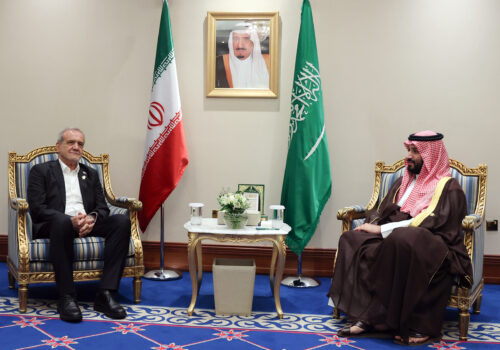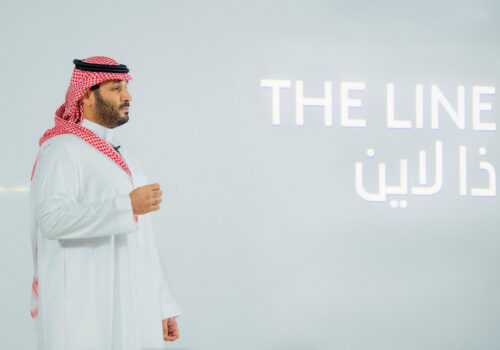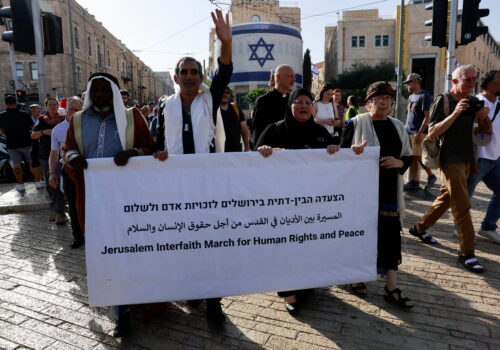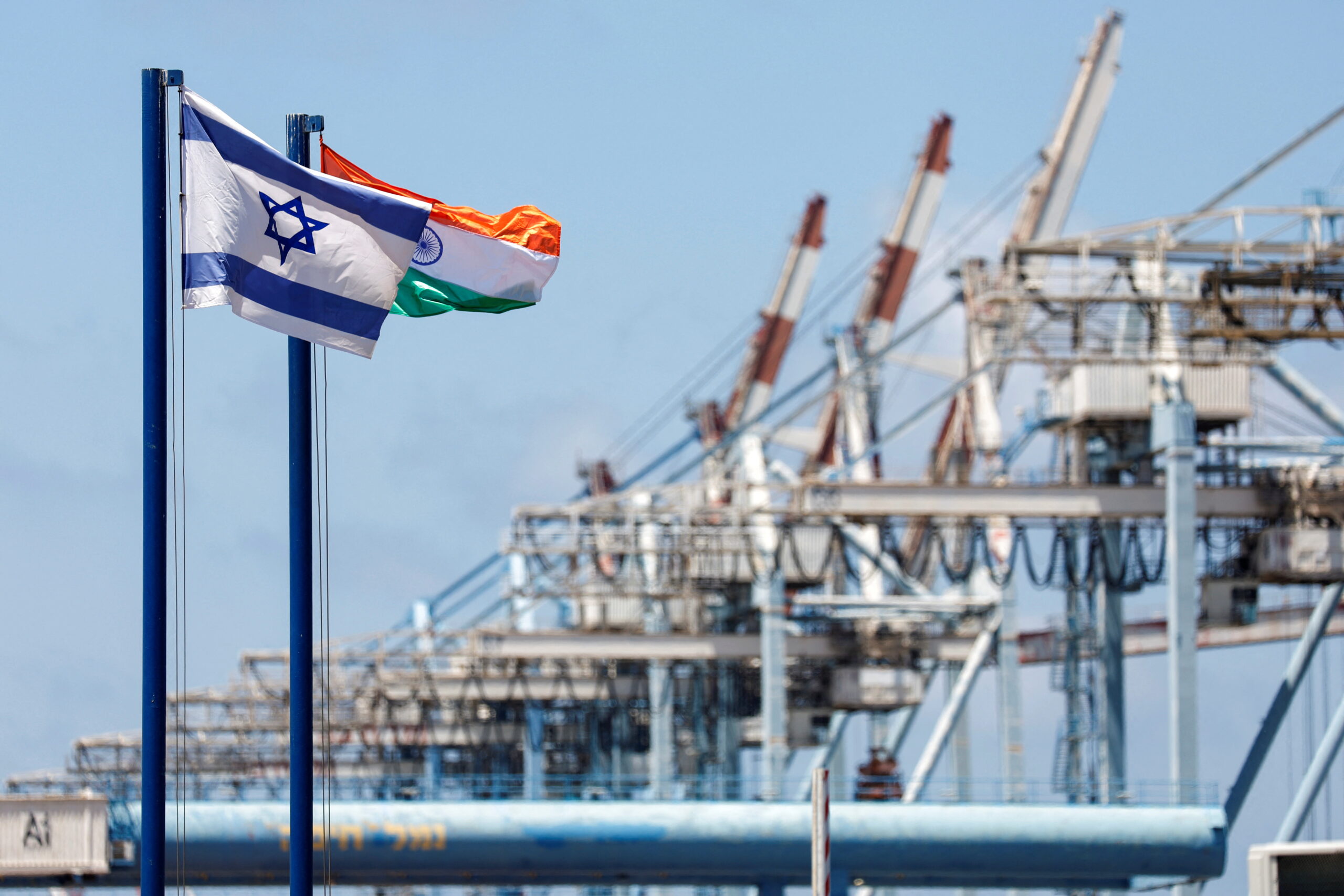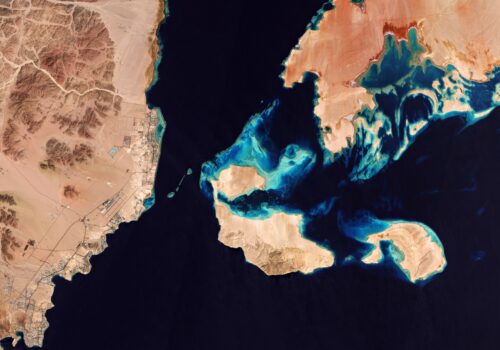The MBS visit to the White House could revive IMEC
The upcoming visit of Saudi Crown Prince Mohammed bin Salman (MBS) to the United States showcases a renewed economic and geopolitical engagement between Riyadh and Washington.
This visit follows a significant bilateral exchange in May when US President Donald Trump undertook one of his first major international visits of his second term to Saudi Arabia. The summit concluded in a series of bilateral agreements between Saudi Arabia and the United States, including trade and investment agreements, designed to deepen economic linkages and enhance cross-sectoral cooperation. Most notably, the countries announced a $600-billion strategic partnership package, encompassing defense, investment, and technology collaboration—marking one of the largest bilateral commitments in recent years.
While these outcomes assure of a strong bilateral partnership, the upcoming MBS visit also presents an opportunity to revive a flagship regional connectivity initiative that has been on pause for over two years: the India-Middle East-Europe Corridor (IMEC).
Related reading
Announced with much fanfare during the 2023 G20 Summit in New Delhi, IMEC was envisioned as a transformative economic corridor linking India, the Gulf, and Europe. The corridor is framed as a strategic alternative to existing maritime routes through the Red Sea and the Suez Canal—regions increasingly vulnerable to geopolitical tensions and disruptions. The US-backed initiative brought together India, Saudi Arabia, the United Arab Emirates (UAE), France, Italy, Germany, and the European Union as signatories to the IMEC. The corridor structure also includes Jordan and Israel as participating countries. Trump, during his February meeting with Indian Prime Minister Narendra Modi, defined IMEC as “one of the greatest trade routes in history.”
Structurally, the transportation component of the IMEC comprises two primary legs. One is an eastern maritime link connecting India’s western ports with the UAE. The other is a northern maritime leg connecting Israel’s Haifa Port to key European ports such as Marseille in France and Piraeus in Greece. Bridging these two oceanic segments is a proposed 2,600-kilometer (approximately) rail network from the UAE’s Jebel Ali Port through Saudi Arabia and Jordan to Israel. This multimodal route can potentially reduce transportation time and costs, offering a faster and secure alternative trade route between Asia and Europe. MBS has commended IMEC as a beneficial trade corridor for its time and cost savings, as well as its contribution to international energy security.
However, shortly after its announcement, the project encountered a major setback. Israel’s war in Gaza after the October 7 Hamas attack, which erupted soon after the 2023 IMEC announcement, disrupted the regional political equations. The conflict froze any engagement between Israel and several Arab states, including Saudi Arabia, halting progress on the corridor. Over the subsequent two years, only limited movement was seen. France and Italy appointed special envoys to coordinate efforts, but Gulf partners, particularly Saudi Arabia, remained disengaged. The corridor that once symbolized economic integration became a victim of regional instability.
A renewed opening for IMEC
Now, in late 2025, a window of opportunity appears to be reopening. Following last month’s US-brokered cease-fire deal in Gaza, regional diplomatic channels are cautiously reviving—including the recent announcement that Kazakhstan will join the Abraham Accords. Washington’s renewed focus on stability and reconstruction could pave the way for IMEC’s reactivation. The upcoming visit of MBS offers an opportunity for both the United States and Saudi Arabia to reinitiate the discussions on IMEC and reassess Saudi Arabia’s potential role. For Washington, reengaging Riyadh is critical not just for the corridor’s viability but also for strengthening its long-term strategic foothold in the Middle East. For Saudi Arabia, participation in IMEC aligns with Riyadh’s Vision 2030—the Kingdom’s blueprint for economic diversification and infrastructure-led growth. Saudi Arabia, being the largest economy in the Middle East and a key geopolitical player, holds a central role in shaping regional connectivity and trade frameworks.
Engaging Saudi Arabia on IMEC: A multilayered approach
A multilayered conversation between MBS and Trump could potentially reinvigorate movement on Saudi Arabia’s involvement in IMEC. Saudi Arabia is an important US partner in the Middle East, and its political alignment with the IMEC will give a much-needed impetus to the corridor—other regional countries, following Saudi leadership, are likely to feel more comfortable about engaging in IMEC conversations. Riyadh’s proactive engagement in reopening discussions on the IMEC will serve as a strong signal of renewed momentum in the initiative.
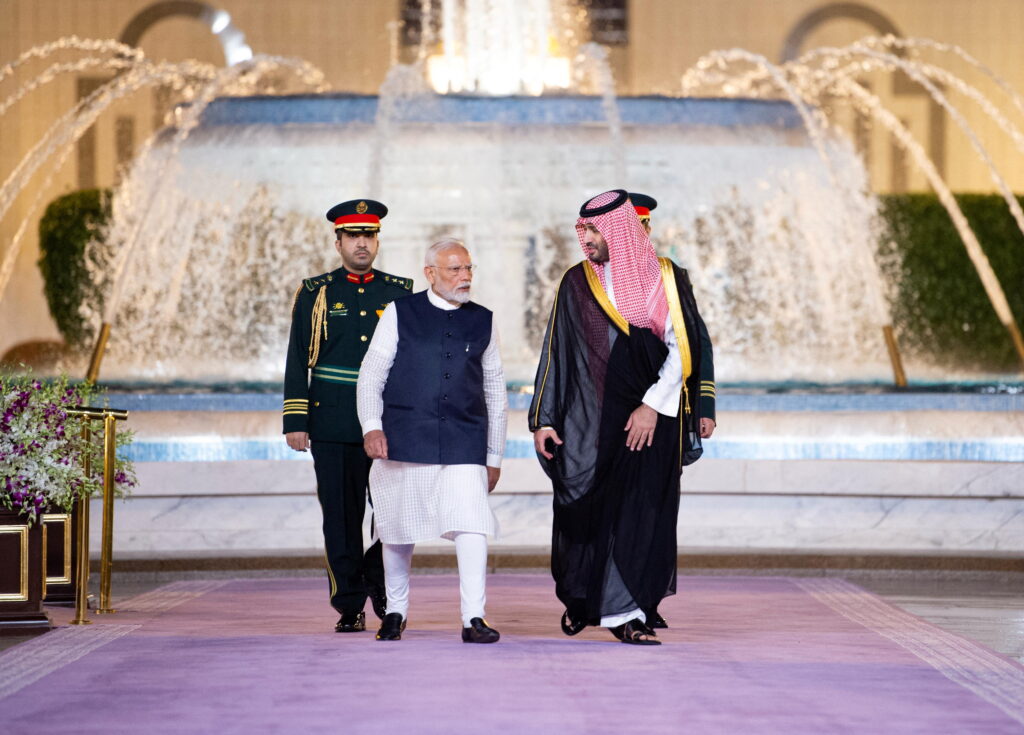
Given Saudi Arabia’s clear position that normalization with Israel is contingent upon a credible pathway to Palestinian statehood, Washington should initiate a structured dialogue with Riyadh on alternative political pathways that could satisfy Saudi requirements. Additionally, a US-backed dialogue to creatively develop a political pathway between Saudi Arabia and Israel can prepare the ground for forward movement. Without such steps, Saudi-Israeli engagement and the IMEC corridor may remain stalled.
For IMEC, the United States should begin by encouraging Saudi participation in multilateral discussions on IMEC. Riyadh’s absence has been a key missing link for the progress on IMEC, and its engagement is essential to shaping the corridor’s Middle Eastern segment. Understanding and addressing Saudi concerns—both political and operational—will be crucial to rebuilding trust.
As part of the renewed engagement on the IMEC, the upcoming Trump-MBS meeting should propose Saudi Arabia as the host location for the IMEC Secretariat. This would be a strategically significant step, reflecting both the geographical centrality of Saudi Arabia within the IMEC route and its geopolitical influence across the broader Middle East. Establishing the Secretariat in Riyadh would not only underscore Saudi Arabia’s leadership role in regional connectivity initiatives but also provide a neutral, credible, institutional base for coordination among partner countries. The secretariat will play a pivotal role in conducting necessary feasibility studies for infrastructure and traffic estimations, as well as interoperability research. These will help identify policy, regulatory, and digital frameworks for seamless corridor operations.
Additionally, Trump should encourage MBS at their upcoming meeting to appoint a Saudi special envoy for IMEC, aligning with similar designations already made by France and Italy. It would demonstrate Saudi Arabia’s tangible commitment to the corridor’s strategic objectives. This could serve as a strong signal of political commitment, potentially catalyzing other countries to follow suit and reinvigorating the overall momentum for IMEC’s implementation. A consistent push from the United States for all IMEC members to appoint national envoys should continue, as it will help put in place the corridor’s governance structure and ensure sustained diplomatic attention.
Saudi Arabia’s active participation in IMEC conversations (such as working group meetings, IMEC envoys/sherpa meetings, and summits) could also be the route for including the broader Middle East—including Oman, Bahrain, and Qatar—in the network. Their participation would not only strengthen regional economic ties but also open potential channels for humanitarian and reconstruction aid, particularly for Gaza, where infrastructure rebuilding remains an urgent priority.
MBS’s visit to Washington thus comes at a critical juncture. While bilateral discussions will likely span defense cooperation, energy transition, and technological investment, introducing IMEC back onto the agenda could be a step toward long-term regional integration. Reviving the corridor aligns with Saudi Arabia’s aspirations to become a global logistics hub, bridging Asia, Africa, and Europe through its strategic geography.
Afaq Hussain is a nonresident senior fellow at the N7 Initiative within the Atlantic Council’s Middle East programs. In this role, much of his work focuses on the economic aspects of the India-Middle East-Europe Corridor. He is the co-founder and director of the Bureau of Research on Industry and Economic Fundamentals in New Delhi.
Further reading
Mon, Nov 10, 2025
A little-discussed point in Trump’s Gaza plan could be an opportunity to build interfaith understanding
MENASource By Peter Mandaville
Peace efforts don’t need more gleaming Abrahamic baubles, they need a genuine commitment to supporting grassroots religious peacebuilding.
Fri, Aug 22, 2025
What’s needed to unlock the power and promise of IMEC
MENASource By Amir Hayek
We must not be afraid to dream, nor forget that achieving a truly transformative economic corridor is within reach.
Thu, Nov 13, 2025
Moses parts the Red Sea: Israel’s strategic challenges as new routes emerge
MENASource By
A new $4 billion bridge across the Strait of Tiran could upend plans to physically integrate Israel into the Middle East.
Image: President Donald Trump speaking at a press conference at the White House in Washington, D.C. (Photo by Michael Brochstein/Sipa USA)
